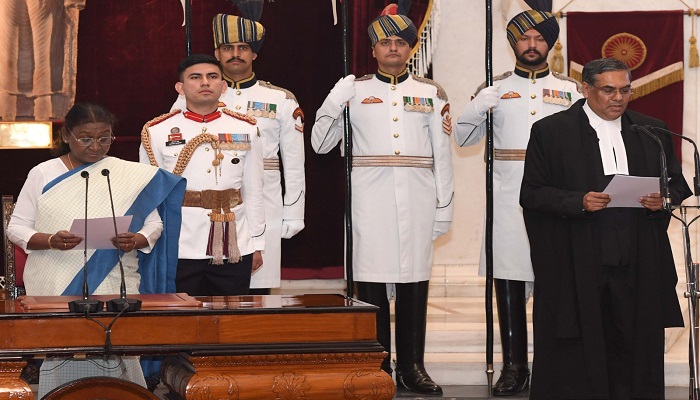
Justice Sanjeev Khanna took oath as the 51st Chief Justice (CJI) of the country. President Draupadi Murmu administered the oath of office to him in a ceremony held at Rashtrapati Bhavan. Justice Khanna's tenure will be for about six months and he will remain in office till May 13, 2025. During his tenure, he has given judgments on several important matters, including opinions on the electoral bond scheme and involvement in cases related to the abrogation of Article 370. Many important changes and important decisions are expected in the Indian Judiciary under his leadership.
Justice Sanjeev Khanna is a resident of Delhi. He has completed all his studies from Delhi. He was born on 14 May 1960. Justice Khanna's father Justice Des Raj Khanna also retired as a judge of the Delhi High Court. Justice Sanjiv Khanna's mother, Mrs. Saroj Khanna, was a lecturer in Hindi at Lady Shri Ram College, Delhi University. Justice Khanna did his schooling from Modern School, New Delhi. After schooling, he studied law at the Campus Law Center (CLC), Faculty of Law, University of Delhi.
Justice Sanjiv Khanna has a judicial career spanning over four decades. After joining the Delhi Bar Council in 1983, he practiced in the Tis Hazari District Courts of Delhi before moving to the Delhi High Court. He worked as Senior Standing Counsel for the Income Tax Department and Standing Counsel for Delhi. Along with this, after being promoted to Delhi High Court in 2005, he became a permanent judge in 2006. Became a judge of the Supreme Court in January 2019 without serving as chief justice of any high court.
Justice Khanna gave many historic judgments during his tenure in the Supreme Court. These include maintaining the utility of EVMs in elections, ending the electoral bond scheme, upholding the decision to abrogate Article 370. Apart from this, the then Chief Minister of Delhi Arvind Kejriwal is to be granted interim bail to campaign during the Lok Sabha elections.
 look news india
look news india
